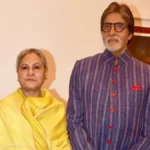In a significant development, Australia captain Pat Cummins has expressed his concerns regarding the changing landscape of cricket, where the Indian Premier League (IPL) is gradually eroding the monopoly that international cricket once held over players’ time. Cummins believes that in the future, it will be increasingly challenging to convince players to prioritize national duty over the allure of franchise cricket.
Cummins has highlighted the decision made by New Zealand’s Trent Boult, who chose to forgo a central contract with his country in favor of participating in lucrative T20 leagues worldwide. According to Cummins, this decision was an inevitable outcome of the transformation the game has undergone since the inception of the IPL a decade ago.
While speaking to the Sydney Morning Herald ahead of the World Test Championship Final against India, set to commence on June 7 at The Oval, Cummins emphasized that the impact of the IPL on the cricketing landscape has been a long time coming and is now undeniably evident.
The IPL, widely regarded as one of the most prestigious and lucrative T20 leagues in the world, has attracted players from various cricketing nations. The tournament’s immense financial rewards, combined with its high level of competition and exposure, have made it a magnet for international cricketers. Consequently, players face the difficult decision of choosing between national commitments and the financial security and global recognition that the IPL offers.
Cummins’ remarks highlight a growing concern among cricket administrators worldwide about the shift in players’ priorities. National duty has traditionally been considered the pinnacle for cricketers, but the rise of franchise cricket has opened up new avenues for players to enhance their careers, both financially and professionally. As a result, the international game risks losing some of its most talented players to the world of franchise cricket.
The lure of the IPL lies not only in the financial aspect but also in the exposure and experience it provides. The tournament attracts top-quality players from around the globe, allowing them to compete against and learn from the best in the business. This exposure contributes significantly to their development as cricketers, leading them to become valuable assets for their respective national teams.
Cricket boards now face the challenge of finding the right balance between protecting their players’ interests and ensuring the primacy of international cricket. The emergence of other T20 leagues, such as the Big Bash League (BBL) in Australia and the Caribbean Premier League (CPL), further intensifies this struggle. These leagues provide additional opportunities for players to maximize their earnings and showcase their skills on a global stage.
While the financial aspect is undeniable, the issue of player workload management also comes into play. The demanding schedule of international cricket, coupled with the commitments players have with their respective franchises, creates a complex juggling act. Fatigue and injury concerns are genuine factors that impact a player’s decision-making process when it comes to balancing national and franchise commitments.
Cricket’s governing bodies must work collaboratively with players, franchises, and leagues to find a mutually beneficial solution. Measures such as creating a more harmonized global cricket calendar, allowing for sufficient rest periods for players, and ensuring fair compensation are crucial steps in addressing these challenges. By striking the right balance, it may be possible to retain the allure and significance of international cricket while accommodating the aspirations and needs of players in the evolving cricketing landscape.
The remarks made by Pat Cummins shed light on the shifting dynamics of cricket in the modern era. The IPL has undeniably disrupted the traditional hierarchy, and players now face a more complex decision-making process when it comes to their cricketing careers.




